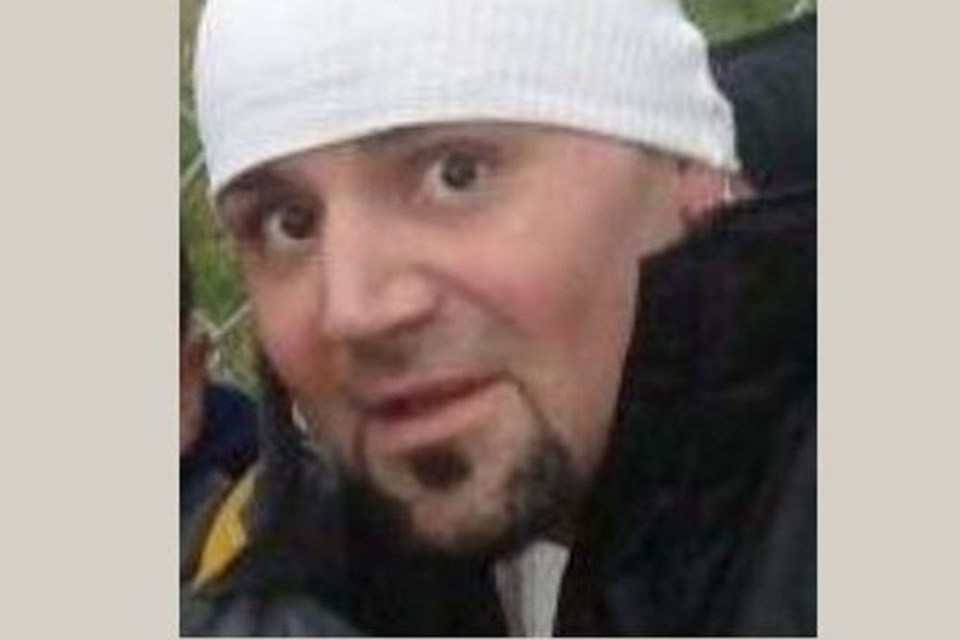THUNDER BAY - A Superior Court Justice had few words for Benjamin Marki, convicted of two counts of second-degree murder, when he sentenced him to life in prison without the possibility of parole for 20 years.
“I never take any degree of pleasure when handing down a sentence of this length,” Justice Terrence Platana said to Marki during his sentencing in a Thunder Bay Courtroom on Wednesday.
Marki, 42, was found guilty of two counts of second-degree murder for the deaths of 60-year-old Wilfred Pott and 50-year-old Anne Chuchmuch following a six day trial that opened Apr. 10, 2018. He was also found guilty of one count of arson endangering life and one count of committing an indignity to a human body.
A guilty verdict for second-degree murder carries with it a mandatory life sentence without the possibility of parole for a minimum of 10 years and a maximum of 25 years. Marki will serve his two life sentences concurrently for each count, with a parole ineligibility period of 20 years. The sentence is considered as having started since the time of his arrest on Jan. 15, 2016.
On the counts of arson and committing an indignity to a human body, Marki was sentenced to 45 months and was credited with time served since his arrest. He is also required to submit a DNA sample and has a weapons prohibition in place for life. Platana waived the victim surcharge fee because he acknowledged that Marki would not be in a position to pay it.
Thunder Bay Fire Rescue Crews were called to reports of a structural fire on the 300 block of Brant Street on the night of Dec. 27, 2015. Upon entering the building, crews found Pott unresponsive inside and suffering from stab wounds. The burned remains of Chuchmuch were later discovered inside the residence.
During the six-day trial, Crown prosecutor, Andrew Sadler, called more than a dozen witnesses to testify. The evidence presented focused on two knives containing blood-like staining that matched the DNA profile of Pott and Chuchmuch, as well as clothing items thought to belong to Marki that also contained blood-like staining and shoes that were found with traces of gasoline.
During the sentencing submissions hearing held last month, Sadler asked Platana to impose two consecutive 15-year periods of parole ineligibility for the murder charges, keeping Marki in custody for a total of 30 years, while defense attorneys, Christin Marrello and George Joseph, sought a total of 15 years of parole ineligibility.
Significant aggravating factors
When handing down his sentence, Platana referred to a pre-sentence report, as well as a Gladue Report.
The pre-sentence report highlighted Marki’s upbringing, citing introductions to drugs and alcohol as early as 9-years of age, as well as instances of abuse and neglect.
“There was nothing normal or stable about Mr. Marki’s upbringing,” Platana said.
Platana also referred to Marki’s extensive criminal background, which began at the age of 15 and continued to escalate to involve property crimes, assault, and weapons charges and he was classified as being at high risk of reoffending.
Referencing the Gladue Report, Platana said Marki was not made aware of his Indigenous heritage until the age of 22 and did not have any traditional upbringing. While he considered the information in the Gladue Report, Platana added that “there is no indication that his Indigenous background brought him before the court.”
“I think he interpreted Mr. Marki’s lack of connection to his Aboriginal roots in coming to his sentencing, but it is not something he ignored,” Joseph said following the verdict.
Platana went on to say that there are “few if any mitigating factors in this sentencing, but the aggravating factors are significant.”
By attempting to cover up the crime by setting fire to the house and Chuchmuch, as well as showing little remorse for his actions, Platana said Marki was morally culpable for his actions.
“This was a very violent and serious crime,” Platana continued. “The murders can only be described as brutal.”
Victim impact statements provided during the sentencing submissions hearing were also cited by Platana, who said they “reveal a devastating loss to the family and a significant loss to the community.”
Joseph said given the nature of the verdict, the sentence handed down by Platana was appropriate, adding that this case was a particularly difficult one.
“There was no direct evidence against Mr. Marki, it was all circumstantial evidence,” he said. “Mr. Marki denied his involvement in the case right from the beginning but the jury found differently as they are entitled to do. It will remain to the court of appeal whether the sentence stands.”
Joseph said he suspects Marki to appeal the sentence as he was asked to put him in contact with a lawyer to handle the appeal. Joseph said he would not be handling the appeal.
When the sentence was handed down, Marki showed no emotion and did not provide a statement when given an opportunity to speak before the court.
Before being led out of the courtroom, Platana addressed Marki directly: “All I can say, sir, is it is a long time, but take advantage of anything you possibly can to make your life better from here on out.”
